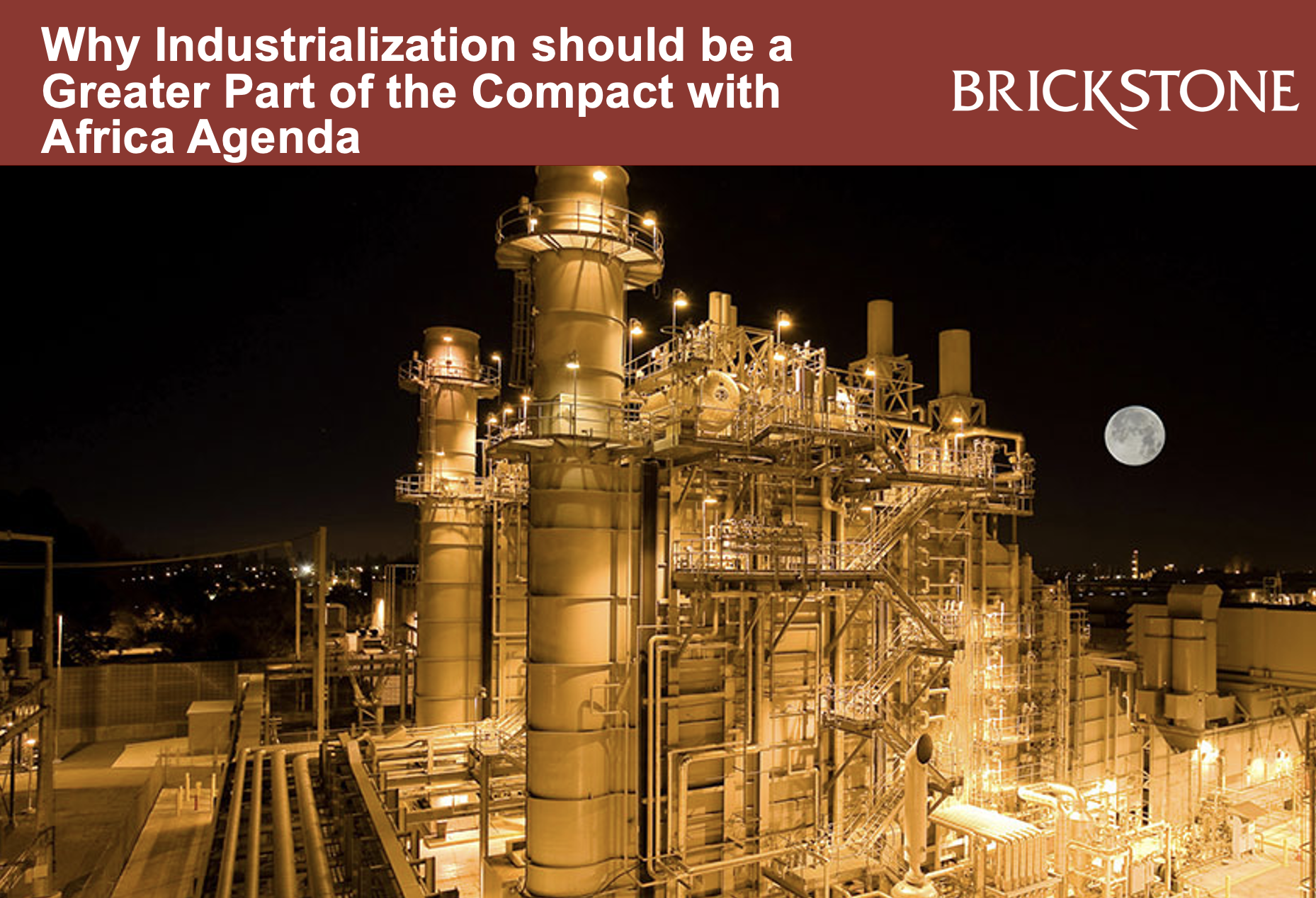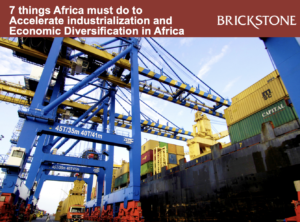Why Industrialization should be a Greater Part of the Compact with Africa Agenda
Six years after it was introduced, the Compact with Africa Agenda (CwA) is having to adapt to a new geopolitical context. In this new context, supply chains are being restructured and African governments are rethinking their priorities and relationships, given the fact that they offer key solutions to current supply chain pressures in advanced economies. At the recent Compact with Africa Agenda (CwA) conference in Berlin, while significant commitments in the energy sector were made, a key job-creating theme was omitted: industrialization.
This article by Brickstone reviews The World Bank’s publication on the role of Industrialization in the Compact with Africa Agenda (CwA), highlighting key facts and insights.
Industrialization in Africa & The Compact with Africa Agenda (CwA)
When it was launched in 2017 under Germany’s G20 Presidency, the goal of the G20 Compact with Africa was to promote private investment in participating African countries by encouraging reforms in the macro, business and financing frameworks. Six years later, in November 2023, Berlin hosted 14 African and European heads of state, as well as the Chairperson of the African Union, and the Presidents of the European Commission and the European Council.
This high-level conference highlighted the commitments to reforms in African countries, as well as the push to increase public and private investments from G20 countries and beyond to participating African countries.
The event demonstrated renewed interest in an initiative that is growing in number: the Democratic Republic of Congo (DRC) has formally joined the CwA; Kenya, Zambia, and Angola have expressed interest.
The following are key facts from the publication:
When it was launched in 2017 under Germany’s G20 Presidency, the goal of the G20 Compact with Africa was to promote private investment in participating African countries by encouraging reforms in the macro, business and financing frameworks. Six years later, in November 2023, Berlin hosted 14 African and European heads of state, as well as the Chairperson of the AfricanUnion, and the Presidents of the European Commission and the European Council. This high-level conference highlighted the commitments to reforms in African countries, as well as the push to increase public and private investments from G20 countries and beyond to participating African countries.
The recent Africa’s Pulse report published by the World Bank shows that the overabundance of micro firms has contributed to slow per-capita growth and, hence, slow poverty reduction in Africa. A stunning 96% of African firms have fewer than five employees. The lack of firm growth inhibits entrepreneurs from adopting new technologies, accessing larger markets, and hiring more workers. This ultimately holds back the creation of good-quality jobs.
Attracting investments in transformative sectors that create and reinforce local value chains is urgent, both to increase firm productivity and create direct and indirect quality jobs. But attracting these kinds of manufacturing investments in sectors in which African countries have a comparative advantage may require an increased focus on targeted industrial policy, specific to each country and sector – whether in the manufacturing of food products, processing raw materials in the battery value chains, or building automotive parts.
Compact with Africa Agenda (CwA) becoming a platform that supports African governments in developing credible industrial policies that can allow them to transform their economies and build things for local consumption and export. In the current geopolitical climate, the CwA could be a platform that works both for African countries seeking to industrialize, and advanced economies seeking to diversify their supply chains, while also setting up shop in the growth markets of the future.
African economies can’t afford not to industrialize. Their import dependence has contributed to the balance of payments and financing issues many African countries are currently facing. At the same time, given current geopolitical shifts, advanced economies are diversifying not only their supply chains but also the number of markets where their firms sell their products. As firms are increasingly producing where they sell, G20 countries should offer them the financing and risk mitigation instruments needed to incentivize local production in Africa for the rapidly growing and regionally integrating African market.
Read the full blogpost here.






